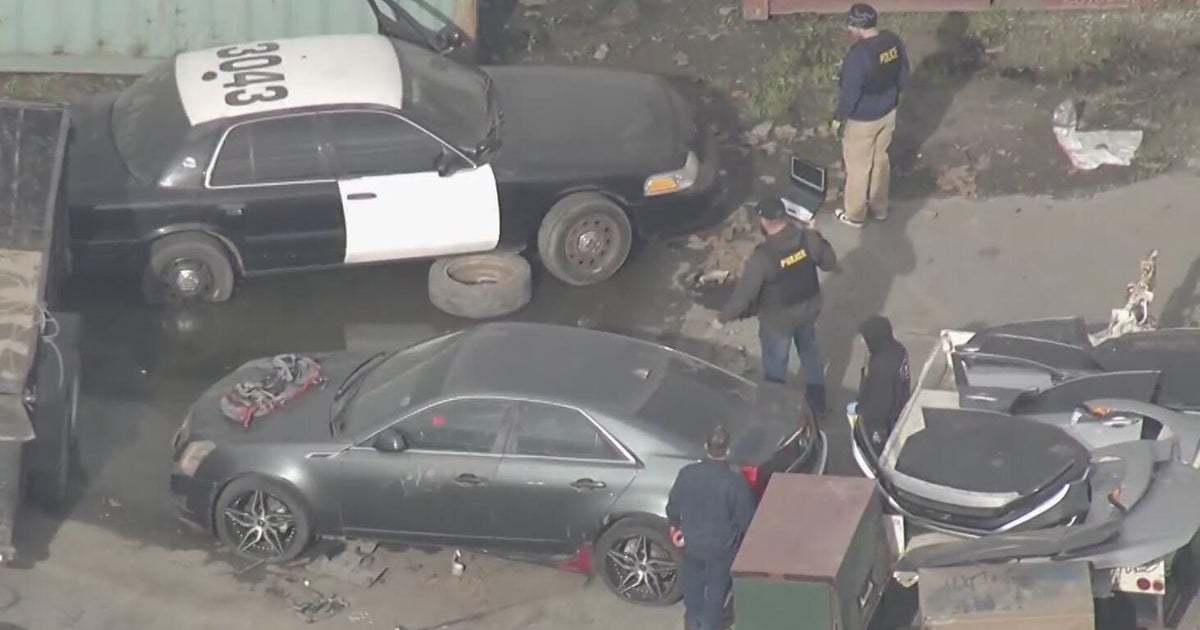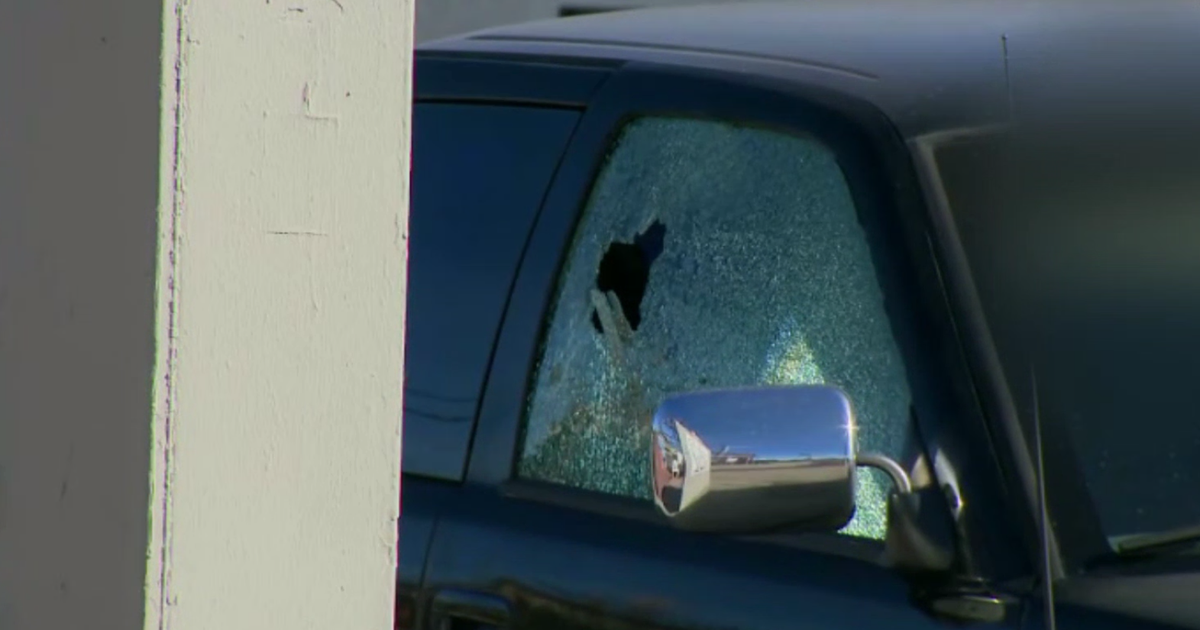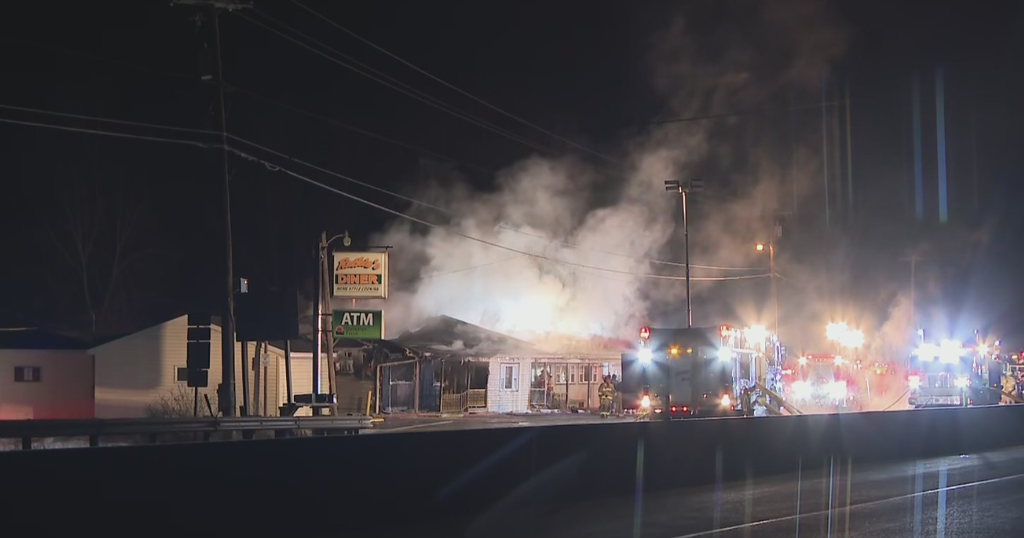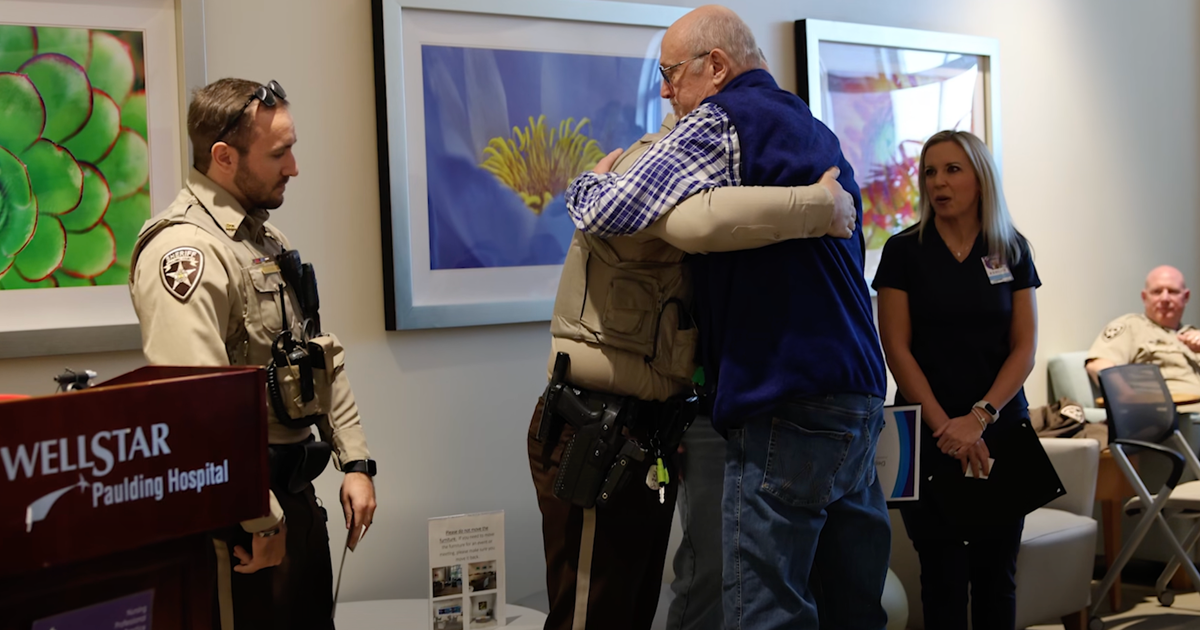Lithium batteries in phones, vape pens, laptops catch fire on planes in Colorado more often than you might think
In the wake of the fiery train derailment in East Palestine, Ohio, CBS News is taking a deep dive this week into safety measures for moving hazardous materials — across all modes of transportation, including airplanes.
Nationally, CBS News has learned incidents involving hazardous materials are happening about twice a week on passenger planes, with the greatest risk by far posed by lithium-ion batteries, which can more easily catch fire on airplanes. In Colorado, hazardous materials incidents in the air are also happening more often than you might think.
The Pipeline and Hazardous Materials Safety Administration's federal database shows all sorts of bizarre incidents involving passengers on planes in and out of Denver.
A CBS News Colorado investigation into PHMSA records found over the last 10 years, there have been over 108 hazardous materials incidents in Colorado in the aviation industry. Of those incidents, 73 involved cargo planes and 35 involved commercial passenger flights. Records show 16 of those incidents involved overheating lithium batteries on flights in Colorado, including vape pens, laptops and cell phones overheating, smoking or catching fire on planes.
The most expensive in-flight incident at DIA was on a United Airlines flight in 2016, when a passenger's cell phone burst into flames while he was playing a game on it. The incident caused $5,000 in damages, but fortunately, no one was injured.
"We've had a lot of incidents here recently, where cell phones have lit on fire, tablets, laptops, vape pens have lit on fire," says aviation attorney Joseph LoRusso.
LoRusso has represented thousands of pilots in Colorado, and as a pilot himself, he's no stranger to the dangers being up in the air can present for our modern-day tech.
"We're defying physics, we're taking a big tube at 600 miles an hour from point A to point B, it's impressive all the way around, and what's also impressive all the way around is the environmental factors that we deal with: extreme cold temperatures, pressure changes, barometric changes, sudden changes, rapid changes ... it really challenges and stresses those batteries and those electronics to kind of their range of acceptability both high and low," LoRusso explained. "While flying is commonplace, please recognize that it does push things to their limits."
CBS News Colorado found it's not just lithium batteries. Passengers' luggage has caused issues in other ways in Colorado.
In 2021, PHMSA records show one Delta passenger's checked bag was leaking sodium hydroxide, a harsh chemical that can burn the skin on contact. Records show the leak caused a Delta employee and TSA agent to go to the hospital, but fortunately, they were both okay.
"Pay attention when you book your ticket, it's that little diagram now they're even putting pictures on it, pay attention to that," LoRusso advises. "Make sure that you're really looking at your stuff and saying, 'all right, do I have anything that could potentially be a hazardous material,' and make sure that if you do have it, you properly know the notify the air carrier so that they can treat that object with the with the care that it deserves."
If you're sending something through the mail that could be hazardous, LoRusso says it's important to make sure it's properly labeled, or you could put other's lives at risk and face a hefty fine.
"If you don't follow the guidelines, if you don't follow the advice of the air carrier, and you do it anyway, the FAA will absolutely bring civil penalties on that, and that is something that we've seen where the FAA really has grabbed the bull by the horns and said, 'yeah, we're doing civil penalties on this,'" LoRusso said. "In many cases, it's based on what has put the general public at risk. and if the flight crew are at risk, and in many cases, let's say you have a bag full of 22 lithium batteries, that's 22 independent fines that the FAA would bring against either you or your business."
LoRusso hopes to see specialized fire containment bags become more commonplace, as he says they are the best tool to put out lithium battery fires in an instant onboard a flight.
Right now, the FAA doesn't require them, but most major airlines do carry them. However, because the bags can cost thousands of dollars, it can be tough for smaller companies or private plane owners to buy them.
CBS News Colorado reached out to United Airlines for a comment about the Colorado incidents on its planes but has not yet received a response.
Delta Airlines wouldn't comment about any specific incidents but says safety is its top priority.
"By following the 'Prohibited Items' list, everyone plays a vital role in flight safety," a Delta spokesperson wrote in an email to CBS News Colorado.
Southwest Airlines provided this statement to CBS News Colorado about how it handles issues with hazardous materials:
"All of our aircraft are outfitted with Viking fire containment bags and heat-resistant gloves. Our Flight Attendants are trained to cool overheated lithium-ion devices in multiple ways. They can do so with fire extinguishers on board, if necessary, and also with non-alcoholic liquids on board such as canned water, potable water or club soda to cool the item. Non-alcoholic liquids are also used within the containment bag."
FedEx, which has also dealt with several hazardous materials incidents in Colorado, provided the following statement to CBS News Colorado:
"FedEx has an extensive dangerous goods (hazardous materials) program, which includes spill prevention, agency notification, appropriate handling, and emergency response to hazardous materials incidents. This program is implemented through policies, procedures, practices, manuals, and training. We comply with all applicable U.S. and state permit requirements and have all required registration numbers for the hazardous materials we accept for transport. We provide training, as appropriate, for employees with respect to the safe and secure handling and transportation of hazardous materials and we offer hazardous materials training for customers and shippers. Shippers are required to complete the appropriate paperwork identifying potentially hazardous contents and these items must be appropriately packaged and labeled. The company offers training seminars to help provide customers with the information and tools they may need to safely ship dangerous goods. Learn more about shipping dangerous goods here: https://www.fedex.com/en-us/service-guide/dangerous-goods/how-to-ship.html#How-to-ship-dangerous-goods"
RELATED: Hazmat road accidents in the U.S. have more than doubled in the past decade | Rising number of lithium battery incidents on airplanes worry pilots, flight attendants










